5 Proven Ways To Build Resilience In Your Child
Mental Health For Mama’s
When you are the primary caregiver of children, it can be easy to forget to look after yourself, while you’re spending all your time looking after others.
We worry about our children’s mental & emotional health, while forgetting about our own.
The problem is, that our children are following our example more than they are listening to our advice.
If we want our children to live in emotional health, we must be the example of it ourselves.
Caregiver burnout is a state of physical, emotional and mental exhaustion that is often accompanied by a change in attitude from positive & caring, to negative & unconcerned.
If you find yourself getting to a place where you feel negative & unconcerned about those you love, you’re not a horrible person, you’re just exhausted.
AVOIDING EXHAUSTION & BURNOUT
Exhaustion & burnout comes from not enough rest or time in soul-filling activities.
Some ideas to take care of yourself and avoid exhaustion & burnout are:
- Get more sleep – go to bed early or have a daytime nap
- Talk to a friend – someone that you feel safe to share your feelings with
- Get yourself some beautiful flowers
- Take a walk outside in the fresh air
- Plan some special things in the future that you can look forward too
- Journal your feelings – allow yourself the space to express everything you’re feeling
- Sit in the sunshine – 10 mins daily increases your natural vitamin D, immunity & serotonin
- Put on your favorite music
- Have a hot bath with Epson salts
- Find a creative hobby that you enjoy
- Exercise – anything that gets your heart rate up
- Pray or meditate
- See a therapist – particularly if you have ongoing feelings that you’re struggling to resolve yourself
- Ask your partner or friend to watch the kids so that you can have a break
- Wake up early before your family to have some time to yourself
- Spend time in nature
MANAGING YOUR OWN MENTAL & EMOTIONAL HEALTH AS A MAMA
Our negative emotions are sometimes a sign that we need to take action.
Planning & preparation for important events can be a positive coping strategy.
Focus on what is in your control:
- your routine
- your mindset
- how much sleep you get
- what food you eat
- how much water you drink
- your words
- how you respond
- who you follow & listen to (on social media)
- the way you treat others
When we are dealing with emotionally draining events, we do not have the same mental & emotional capacity as we normally do.
This means that we will become overwhelmed, emotional or angry more easily than usual.
Adjust your expectations for the situation you are dealing with – your expectations of yourself & your expectations of others. Remember that everyone (including yourself) is doing the best they can.
Reframing is the ability to look at the same situation from a different perspective.
It is one of the most effective mind-management strategies when you are dealing with a challenging situation that you can’t change.
Research has found that using reframing, activates a part of the pre-frontal cortex in our brain, that slows down our stress response.
Neuroscientists refer to this part of the brain as “the brain’s breaking system”.
This means that when you actively reframe a situation (look at the same situation from a different perspective) you are slowing down your stress response.
Some questions to help you reframe are:
- What is the good in the bad situation?
- How much will this matter in 3 years? 5 years? 10 years?
- What opportunities could this provide that I haven’t thought about yet?
Naming your emotions also activates the same “breaking system” in the prefrontal cortex & slows your stress response.
Simply by being aware of & naming your feelings, decreases your stress response.
You can do this by talking about your feelings with your close relationships, or by writing your feelings unedited in a journal.
When you are trying to manage anxiety levels around a situation that you have no control over, one of the most positive strategies you can use is positive distraction.
For example, if you have an important test coming up, your anxiety may be a sign that you haven’t done enough study to prepare for the test. But if you are still experiencing high anxiety levels after you have thoroughly prepared & studied, then your next best step is distraction.
Positive distraction is any enjoyable activity that doesn’t have a negative return – watching your favorite shows, exercising, doing a creative hobby, talking with a friend.
Some of our physical experiences of anxiety or negative emotions, can simply come from a lack of physical exercise, sunshine or exposure to nature.
As part of taking care of your mental & emotional health, include exercise outside in the sunshine, preferably in nature.
Even just 20 mins of mild aerobic activity activates your immunity & serotonin levels (the mood-boosting chemical)
NOTE: There are many daily activities we can do to take care of our own mental & emotional health. If after using these suggestions you still find that you are significantly struggling with your thoughts or mood, please talk with a professional.
When we look after our own mental & emotional health, we’re not just taking care of ourselves. We are also setting an example for our children to follow of how to look after their own mental & emotional health.
Remember they are following our example more than they are listening to our advice.












